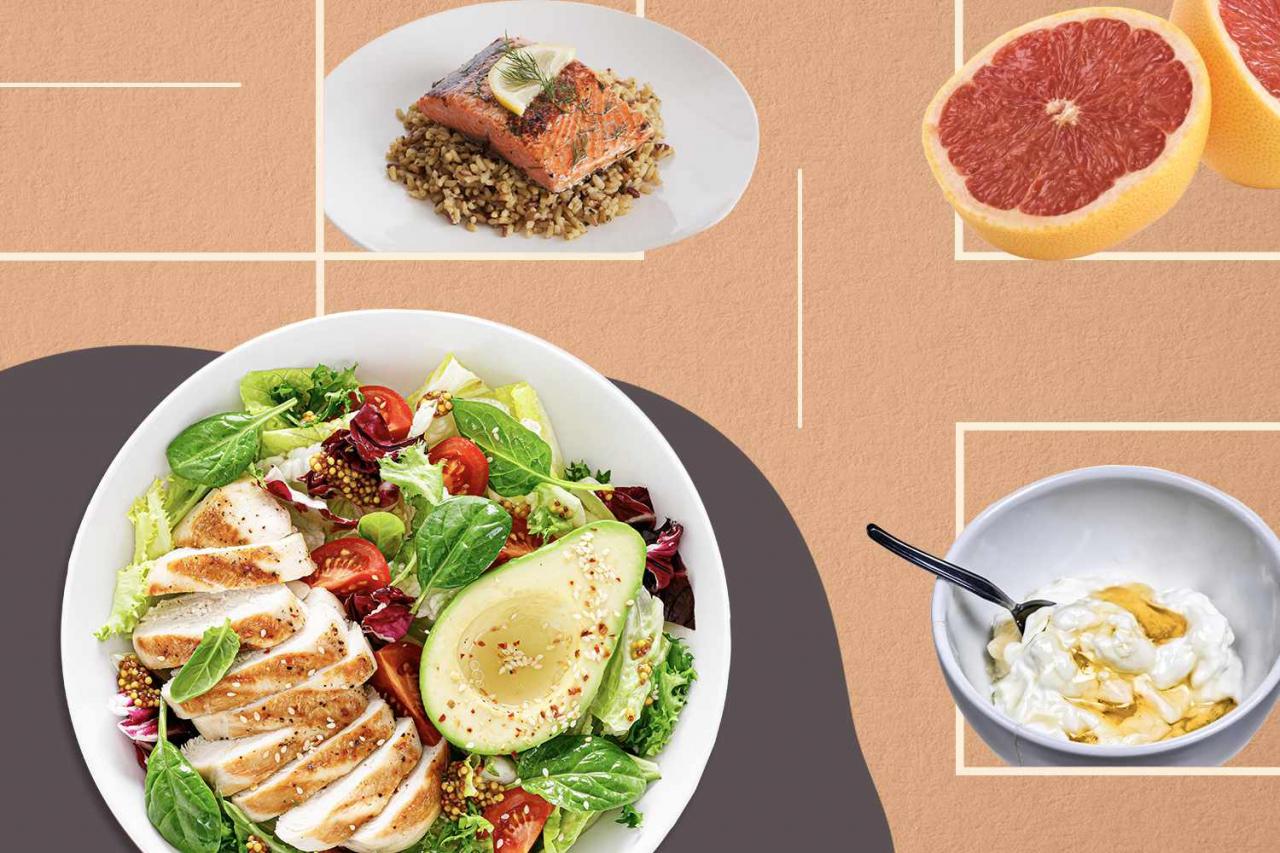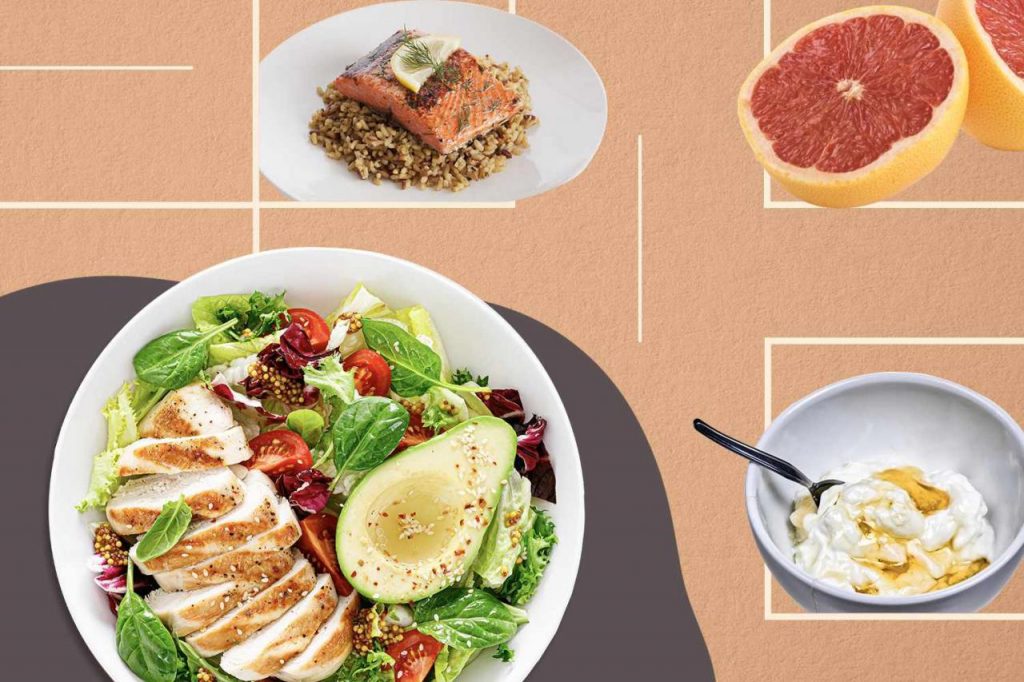In today’s fast-paced world, finding the time and energy to create a balanced meal plan can seem like a daunting task. However, with the right tools and knowledge, it is possible to create a menu that nourishes both your body and soul. In this article, we will explore how to craft a balanced meal plan that will leave you feeling satisfied and healthy. Let’s dive in and discover the secrets to creating a menu that will keep you fueled and energized throughout the day.

Designing a Nutrient-Rich Meal Plan
Creating a nutrient-rich meal plan is essential for maintaining a healthy and balanced diet. When designing your meal plan, it’s important to consider the following factors:
- Include a variety of fruits and vegetables in every meal to ensure you are getting a wide range of vitamins and minerals.
- Choose lean protein sources such as chicken, fish, tofu, or beans to help build and repair muscles.
- Incorporate whole grains like brown rice, quinoa, or whole wheat bread to provide long-lasting energy.
- Don’t forget healthy fats from sources like avocado, nuts, and olive oil to support brain health and hormone production.
By incorporating these elements into your meal plan, you can ensure that you are getting all the nutrients your body needs to function at its best. Remember to listen to your body and adjust your plan as needed to meet your individual nutritional needs.
| Meal | Food | Nutrients |
|---|---|---|
| Breakfast | Greek yogurt with berries and nuts | Protein, fiber, antioxidants |
| Lunch | Grilled chicken salad with quinoa | Protein, whole grains, vitamins |
| Dinner | Salmon with roasted vegetables and sweet potato | Omega-3 fatty acids, fiber, vitamins |
Incorporating a Variety of Food Groups
When creating a balanced meal plan, it’s crucial to incorporate a variety of food groups to ensure you are getting all the nutrients your body needs. By including a mix of fruits, vegetables, grains, proteins, and dairy, you can create meals that are both nutritious and delicious.
Fruits:
- Apples
- Berries
- Bananas
Vegetables:
- Spinach
- Broccoli
- Carrots
Grains:
- Quinoa
- Brown rice
- Whole grain pasta
Proteins:
- Chicken
- Salmon
- Beans
Dairy:
- Greek yogurt
- Cheese
- Milk
Mindful Portion Control for Optimal Nutrition
Creating a balanced meal plan is essential for practicing mindful portion control and achieving optimal nutrition. By carefully selecting a variety of nutrient-dense foods in appropriate portion sizes, you can fuel your body with the necessary nutrients it needs to function at its best.
One approach to creating a balanced meal plan is to focus on incorporating a mix of food groups into each meal. Include a lean protein source, such as chicken, fish, tofu, or beans, to help build and repair muscles. Add whole grains like quinoa, brown rice, or whole wheat bread to provide sustained energy throughout the day. Include a variety of colorful fruits and vegetables to boost your intake of vitamins, minerals, and antioxidants.
Another important aspect of mindful portion control is to listen to your body’s hunger and fullness cues. Pay attention to when you feel satisfied, rather than stuffed, and adjust your portion sizes accordingly. Using smaller plates, bowls, and serving utensils can also help prevent overeating. Remember, it’s not just what you eat, but how much you eat that matters for optimal nutrition.
Balancing Macronutrients for Sustained Energy
When it comes to creating a balanced meal plan for sustained energy, it’s important to focus on incorporating the right mix of macronutrients into your diet. By including a combination of carbohydrates, proteins, and fats in each meal, you can help stabilize your blood sugar levels and maintain consistent energy throughout the day.
Here are some tips for balancing macronutrients to promote sustained energy:
- Include complex carbohydrates: Opt for whole grains, fruits, and vegetables to provide a steady source of energy.
- Incorporate lean proteins: Include sources like chicken, fish, tofu, or legumes to support muscle repair and keep you feeling full longer.
- Add healthy fats: Include sources like avocados, nuts, seeds, and olive oil to provide essential nutrients and support brain function.
By creating meals that contain a balanced blend of macronutrients, you can help sustain your energy levels throughout the day and support overall health and well-being.
As you embark on your journey to create a balanced meal plan, remember that it’s all about finding a healthy and sustainable way to nourish your body. By incorporating a variety of nutrient-rich foods, listening to your body’s hunger cues, and enjoying your meals mindfully, you can build a meal plan that supports your overall well-being. Balance is key in creating a meal plan that not only fuels your body but also satisfies your taste buds. So, take the time to experiment and find what works best for you. Here’s to a happy and healthy eating journey ahead!


